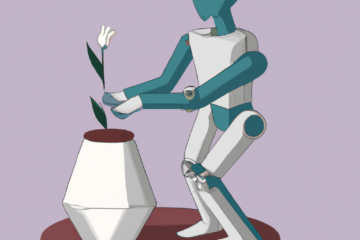I am struggling to write my thesis conclusions, so I wrote something semi-related to help:
I’m confused about the exam results and all this talk of magic algorithms. There are a lot of experts saying it is ‘bad’. What exactly is the thing that we are talking about that is ‘bad’? What are we actually talking about? I’m not saying something isn’t ‘bad’; something is very bad. But what is it?
Data Genesis 1
In the beginning, we created the statistical model and human interactions. And both of these things were without digital form. So, we said ‘let there be programming languages’, and we encoded the statistical methods in them and saw they were good. We said ‘let there be data’, and we encoded the human interactions in that, and we said it was good. We said “let the statistical models be applied to the data”, and we could use outputs and other representations to make us look like we knew something to our boss, and it was good. We saw everything that he had made, behold, it was all good. Finally, we decided to act on the outputs and other representations. fuck.
What is an elephant?
So what exactly are we talking about in the public discussion about algorithms? Is it about the bad things companies and states do to us because of our data? Is it how we react to that, how we stop it?
Is it because like blind men describing elephants, the thing is so complicated that nobody understands the whole problem. If we want to understand what is truly bad, we need to see the thing as a whole, which can only be achieved by better communication about the different parts of the elephant.
I honestly do not think we can have a proper public debate without a common model to explain the different aspects of data-analysis that occurs within data-driven organisations. Otherwise, we are just saying ‘I saw society act in this way, and that way was bad’. Bad can be very subjective. Do the people with the power to do anything about it think it is bad? How did they achieve the power to do something about it?
Phrases like statistical modelling and data-analysis take on this god-like persona, but they are not god-like. You can’t talk about the trunk without understanding the rest of the elephant. But, between us, we do understand this elephant. Individually, the tools that enable this to happen are accessible. Citizens can write statistical models, citizens can write code, citizens can create and share data. Society does have access to the tools that shape our lives, and this access gives us insight into the different parts of this data-driven elephant.
An understanding of how these things interact, what they are and how they are used requires us to pick the tools up and try them. It requires us to be able to talk to each other about the different aspects of them and how they work together. We have to do better than say ‘this is bad’ when ‘the other wing’ wins.
“File:Boruvka’s algorithm (Sollin’s algorithm) Anim.gif” by Alieseraj is licensed under CC BY-SA 3.0



0 Comments